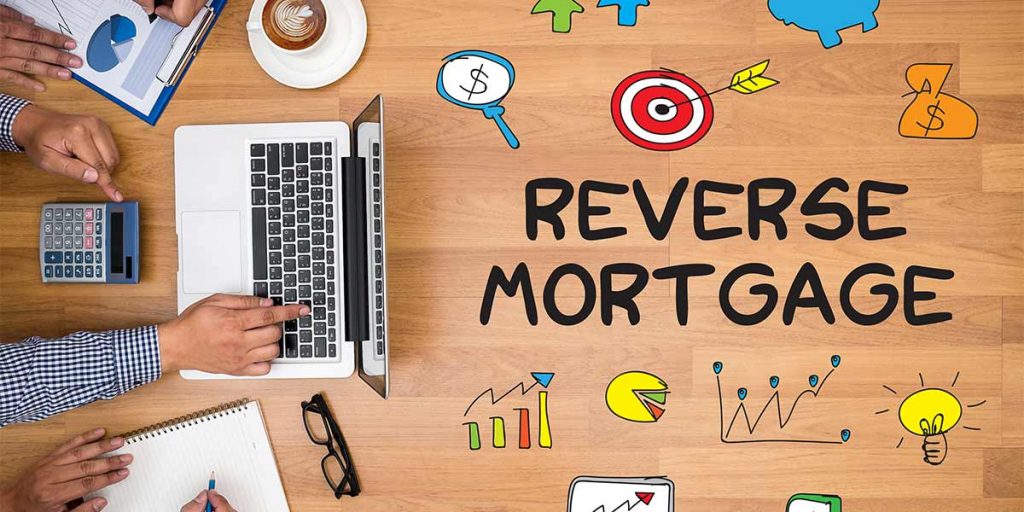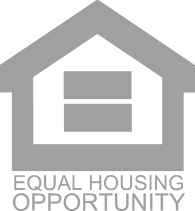
Is a Reverse Mortgage Right for You? Find Out Here

Reverse mortgages have become increasingly popular among retirees and seniors who want to tap into their home equity without selling their homes. A reverse mortgage is a type of loan that allows homeowners to convert their home equity into cash while still retaining ownership of their property. This article provides a comprehensive guide to reverse mortgages, covering everything from the basics to the advantages and disadvantages.
Before we jump into the article, if you’re seeking alternative loan options for a real estate property, you’re already in the right place. Our team at REI News does the heavy lifting in searching for the perfect lender to meet your exact needs. Speak to us today to uncover affordable, reliable real estate financing opportunities.
Now let’s dive into reverse mortgages.
-
What Is a Reverse Mortgage?
A reverse mortgage is a type of loan that allows homeowners to convert a portion of their home equity into cash. Unlike a traditional mortgage, where the homeowner makes monthly payments to the lender, with a reverse mortgage, the lender makes payments to the homeowner. The loan is repaid when the homeowner moves out of the home, sells the home, or passes away.
-
How Does a Reverse Mortgage Work?
With a reverse mortgage, the homeowner must be at least 62 years old and have significant equity in their home. The amount of cash the homeowner can receive is based on the home’s value, the homeowner’s age, and the interest rate. The homeowner can choose to receive the money as a lump sum, line of credit, or monthly payments.
The interest on the reverse mortgage accrues over time and is added to the loan balance. The loan balance increases over time, reducing the equity in the home. When the homeowner dies, moves out of the home, or sells the home, the loan is repaid by the sale of the home. If the sale proceeds are less than the loan balance, the FHA insurance that comes with the reverse mortgage will cover the difference.
-
Types of Reverse Mortgages
There are three types of reverse mortgages available in the United States:
-
Home Equity Conversion Mortgages (HECMs)
HECMs are the most common type of reverse mortgage and are backed by the Federal Housing Administration (FHA). These loans are regulated by the government and have several important consumer protections, including a requirement for counseling and a cap on the fees that lenders can charge.
-
Proprietary reverse mortgages
Proprietary reverse mortgages are private loans that are not backed by the government. They are often available to homeowners with high-value homes and can provide higher loan amounts than HECMs.
-
Single-purpose reverse mortgages
Single-purpose reverse mortgages are offered by some state and local governments and nonprofit organizations. These loans are typically used for a specific purpose, such as home repairs or property taxes.
It is important to understand the differences between these types of reverse mortgages and choose the one that best fits your needs. An experienced mortgage professional can help you navigate the options and choose the right loan for your situation.
Regardless of the type of reverse mortgage, it is important to keep in mind that the loan balance will increase over time, reducing the equity in your home. It is important to have a plan for repaying the loan, such as selling the home or using other assets to pay off the balance.
Get In Touch With The Real Estate Investor News Team If You Want To Know More About Buying And Financing Investment Properties
-
Eligibility Requirements
To be eligible for a reverse mortgage, you must meet the following criteria:
- You must be at least 62 years old. Younger spouses may be able to be included in the loan as non-borrowing spouses, but they will not be able to access the loan proceeds if the borrowing spouse passes away or moves out of the home.
- You must own your home outright or have a low mortgage balance that can be paid off with the proceeds from the reverse mortgage.
- The home must be your primary residence. You must live in the home for at least six months of the year.
- You must attend a counseling session with a HUD-approved counselor before applying for a reverse mortgage. The counseling session is designed to ensure that you understand the costs and benefits of the loan and explore alternatives to a reverse mortgage.
- You must be able to pay property taxes, homeowners insurance, and any other applicable property charges.
It is important to note that credit score and income are not factors in determining eligibility for a reverse mortgage. However, the lender will evaluate your financial situation to ensure that you can pay property taxes, insurance, and other expenses associated with homeownership.
If you meet these eligibility requirements, you may be able to qualify for a reverse mortgage. However, it is important to carefully consider whether a reverse mortgage is the right choice for your financial situation before applying. An experienced mortgage professional can help you understand the costs and benefits of the loan and explore alternatives.
-
Benefits and Drawbacks of Reverse Mortgages
A reverse mortgage can provide several benefits for homeowners but also drawbacks, so it is important to evaluate both before applying for a reverse mortgage.
Pros of a Reverse Mortgage
- Access to cash: A reverse mortgage allows you to access the equity in your home as cash. You can use the funds for any purpose, such as paying off debt, making home improvements, or supplementing retirement income.
- No monthly mortgage payments: With a reverse mortgage, you do not have to make monthly mortgage payments as long as you live in the home. This can free up cash flow for other expenses.
- Tax-free income: The funds you receive from a reverse mortgage are not taxable income, so you can use them without worrying about increasing your tax liability.
- No risk of foreclosure: You can stay in your home as long as you meet the loan requirements, even if the loan balance exceeds the value of the home. You cannot be forced to leave the home or face foreclosure as long as you maintain the property and pay property taxes and insurance.
Cons of a Reverse Mortgage
- High fees and closing costs: Reverse mortgages can have higher fees and closing costs than traditional mortgages. These fees can include an origination fee, appraisal fee, mortgage insurance premium, and other costs.
- Reduced equity: The loan balance will increase over time, reducing the equity in your home. This can limit your ability to sell or leave the home to heirs.
- Impact on government benefits: The funds you receive from a reverse mortgage can impact your eligibility for government benefits, such as Medicaid and Supplemental Security Income (SSI). Understanding how a reverse mortgage could impact your benefits is essential before applying.
- Risks for non-borrowing spouses: If your spouse is not listed as a borrower on the reverse mortgage, they may not be able to remain in the home if you pass away or move out of the home. Non-borrowing spouses may also be at risk of losing access to the funds from the reverse mortgage.
Overall, a reverse mortgage can provide benefits for homeowners who need access to cash and want to stay in their home. However, it is important to carefully consider the costs and benefits of the loan and explore alternatives before applying. An experienced mortgage professional can help you understand your options and make an informed decision.
-
Alternatives to Reverse Mortgages
While a reverse mortgage can be a useful tool for some homeowners, it is not the best choice for everyone. There are several alternatives to consider, including:
- Refinancing: If you have equity in your home and want to access cash, refinancing your mortgage may be a better option. This can allow you to obtain a lower interest rate and monthly payments that fit your budget.
- Home equity line of credit (HELOC): A HELOC is a line of credit that uses your home as collateral. You can access funds as needed, and you only pay interest on the amount you use. This can be a good option if you need to access cash for a specific expense, such as home repairs.
- Selling the home: If you do not want to stay in your home or need to downsize, selling the home may be a better option. This can provide you with cash to use for other expenses or investments.
- Downsizing: If you do not need as much space or want to reduce your housing expenses, downsizing to a smaller home can be a good option. This can provide you with cash from the sale of your home and reduce your monthly expenses.
- Government programs: There are several government programs that can provide assistance to seniors who need help with housing expenses, such as the Low-Income Home Energy Assistance Program (LIHEAP) and the Housing Choice Voucher Program.
It is important to carefully consider all of your options and work with a financial professional to determine the best choice for your situation. While a reverse mortgage can provide benefits, it is not the only option available and may not be the best choice for everyone.
-
How to Apply for a Reverse Mortgage
To apply for a reverse mortgage, the homeowner must contact a lender that offers reverse mortgages. The lender will explain the loan options and eligibility requirements. The homeowner must complete a counseling session with a HUD-approved counselor. During the counseling session, the counselor will explain the loan’s costs, financial implications, and alternatives. The homeowner will then complete an application and provide documentation, including proof of age, income, and home ownership.
Once the application is complete, the lender will order an appraisal to determine the home’s value. The homeowner must also undergo a financial assessment to ensure they can pay property taxes and insurance. Based on the appraisal and evaluation, the lender will inform the homeowner of their eligibility and the final terms of the agreement.
Summary
Reverse mortgages can be a valuable financial tool for seniors who have significant home equity but limited income. They allow homeowners to convert their home equity into cash while still retaining ownership of their property. However, reverse mortgages can be expensive, and the loan balance increases over time, reducing the equity in the home. It is essential to understand the eligibility requirements, costs, and alternatives before applying for a reverse mortgage.
If you’re looking to discover financing options for real estate, then you don’t need to look any further. The experts here at REI News have decades of experience in finding the perfect lenders to meet investment needs. Speak to us today to unlock the best real estate loans in the market.
FAQs
Q: Is the money received from a reverse mortgage taxable?
A: No, the money received from a reverse mortgage is not taxable.
Q: What happens if the loan balance exceeds the home’s value?
A: Your loan balance cannot exceed the original appraised home value. The FHA insurance will cover the difference, and the homeowner or their heirs will never owe more than the home is worth.
Q: Can a reverse mortgage be refinanced?
A: Yes, a reverse mortgage can be refinanced, but it is not always the best option.
Q: How much can a homeowner borrow with a reverse mortgage?
A: The amount a homeowner can borrow with a reverse mortgage depends on the home’s value, the homeowner’s age, and the interest rate.
Q: Can the homeowner be forced to sell their home to repay the loan?
A: No, the homeowner retains ownership of their home and can sell the home to repay the loan.
Let Us Help You Boost Your Real Estate Projects!
Share your real estate investment projects with us and one of our team members will contact you with the right funding solution.




 Previous Post
Previous Post Next Post
Next Post






